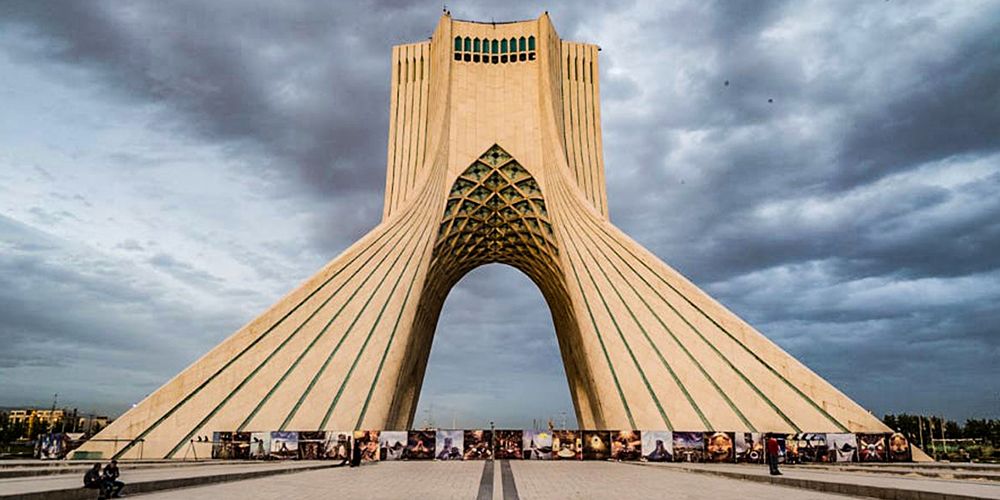Search

Publications
Acceding BRICS will allow Iran to improve its position on the global arena

Iran announced in June the submission of its bid to accede BRICS. [1] This organization has quite a controversial reputation in the expert community. Some insist that this association of the five states (Brazil, Russia, India, China, and South Africa) has the future of the global economy in its hands as it unites the major developing centers. Some criticize this format accusing the organization of unclear goals and objectives, serious internal contradictions among the members, as well as of the absence of common interests and balance.
Irrespective of the attitude towards BRICS, for Iran this membership may be a chance to improve its positions on the global arena both from the economic and image standpoints, especially against the background of the American sanctions and general isolation. Iran would be an ideal match taking into account the anti-Western position of BRICS.
Teheran’s integration policy
Over the recent years, Iran has been striving to participate actively in the non-Western integration projects, especially in the context of failing the relations with the West after the unilateral exit of the USA from the nuclear deal and follow-up negotiations on its restitution, which currently are stalled.
Here is a remarkable example. In 2018, Iran signed the temporary Free Trade Area (FTA) agreement with the Eurasian Economic Union (EAEU) and secured the improved accessibility of the five member-countries’ markets covering 55% of the total mutual trade. Work is underway to execute the permanent FTA agreement. [2]
Teheran reinforced the Eastern vector of its integration policy after the conservative President Ebrahim Raisi came into office. Thus, Iran’s accession to the Shanghai Cooperation Organization (SCO) was the first meaningful success of the new President. [3] This evidences not only the “turn to the East” of the Islamic Republic of Iran (IRI), but also a qualitative change in the attitude towards Iran over the recent years. Teheran succeeded in allaying the fears of the SCO member-countries about its Islamism proving it was capable of constructive dialogue with secular forces, as well as that its expansionist ambitions covered only certain regions of the Middle East, and its anti-terrorist views and approaches were similar to the other countries’ position in many aspects. [4]
Iran is also active in Islamic solidarity associations like Organization of Islamic Cooperation (OIC) with the main goal to counteract Israel. [5] Iran’s membership in OIC is fraught with its complicated relations with Saudi Arabia. In 2015, after the diplomatic break with Riyahd, Teheran remained without its representative OIC office in Jidda.
Nevertheless, despite seemingly irreconcilable contradictions, the normalization negotiations process between Iran and Saudi Arabia was launched in Baghdad. The fourth round of these negotiations resulted in the decision to bring the Iranian representative office with OIC back to Jidda. [6]
Within its integration policy Iran does not want to “knock on the closed doors”, but strives for interacting with associations ready to hear its voice, where it can freely express its position. The Iranian bid to accede BRICS is intended to continue this trend.
What BRICS’ aspiration are
Creation of BRICS was a response of its own kind to the structural changes in the global economy. The G8 countries at a certain point of time understood that the existing economic system was no longer in line with the current challenges, it was US-centric and did not reflect the economic multipolarity. [7] All of that impeded the global economy development. In relation with this, the decision was made in 2007 to build bridges with the major developing centers, particularly with China, India, Russia, Mexico and South Africa. In fact, this idea did not fly: the leaders of those credit did not have trust to the G8, they did not want to “be used”, but they realized that they could cooperate between themselves.
At the first BRIC summit (Brazil, Russia, India, and China) in 2009 in Yekaterinburg the key mission of the association was declared: forming a more democratic and fair multipolar world order functioning on the principles of mutual respect, rule of law and collective decision-making. [8] Later South Africa acceded, and BRIC became BRICS.
Hence, BRICS member-countries are to a great extent contrapose the West and see their association and the possibility to create a parallel economic platform without major centers dictating their own rules.
Despite the nonconformism inherently present in the statements by BRICS member-countries, they did not succeed in their attempts to act completely independently from the West. Thus, after receiving the observer status in 2015 [9] Iran made no secret of its intent to become a full member, however, its difficult relations with the USA stalled the process. [10] BRICS member-countries did not want to assume the responsibility for the economic cooperation with Teheran: China did not want to jeopardize its trade and economic relations with Washington, India had vast connections with the US in the military and technical sphere and did not want to complicate the situation.
At present the effective consideration of the Iran’s accession bid is underpinned by the political changes. Firstly, the world in general strives for abandoning the US-centric model, while the competition between China and the USA is growing.
Secondly, the contradictions between Western and non-Western countries aggravated against the background of the Russian special military operation in Ukraine. Despite the fact that the BRICS countries did not express their open support of the operation, their reaction is markedly different from that of the Western world. Where the West is trying to effectively isolate Russia and not to deal with it, especially in the economic sphere, other countries are ready to enhance the economic cooperation if they see benefits for themselves. The G20 Foreign Relations Ministers’ session in Indonesia was a remarkable example demonstrating that only Western countries boycotted the events with participation of Russia. [11]
Iranian interest
Considering that BRICS’ mission is shaping the multipolar world order, and this organization strives to stand against the West within the global agenda, its expansion appears to be quite imminent. And such big region like Middle East cannot be ignored in this regard.
Iran has significant transit potential. Its geographical position makes it geopolitically important as a bridge connecting Central Asia and Middle East. The Islamic Republic is the only straight route between the Persian Gulf in the South and the Caspian Sea in the North, and the Strait of Ormuz in the South-Eastern coast is one of the key through-passage for transporting oil from the Gulf countries.
The key BRICS members – Russia and China cooperate with Iran in various areas. Thus, Moscow is developing collaboration within the EAEU, as well as along the North – South transportation corridor. Beijing, in its turn, is the main importer of Iranian energy paying for it in RMB, which contributes to internationalization of the Chinese currency. [12]
On top of that, India, also BRICS member-country, announced its intent to maintain strong economic ties with Teheran in spite of the sanctions. [13]
Two main factors – economic and political – underpin Iranian intent to access BRICS. The country has been under sanctions for many years, and they were ramped up in 2018, in line with Donald Trump’s (the ex-President) policy of the maximum pressure on Iran. Teheran is counting on Russia and China to increase their investment into the Iranian oil-and-gas industry helping the country to find its way out of the economic dead end. [14]
Another important reason for Iran to strive for BRICS membership is the BRICS New Development Bank (NDB). This bank was designed to become an alternative to the existing American and European financial institutions, such as the World Bank and the International Monetary Fund. The main objective of the BRICS NDB is to promote sustainable development of the member-countries.
Starting from receiving the observer status in 2015, Iran announced its intent to join NDB as soon as possible. [15] At that time, Russia stated that no positive decision on that was expected in the near future, for the main reason of Iran failing to perform all the required accession procedures. [16] However, today this position may be revised.
Iran sees NDB as the possibility to enhance its economic ties with BRICS member-countries, as well as for receiving loans on favorable terms.
Finally, accession to BRICS would be very positive for Iran’s image as a serious step to break the isolation. This membership would mean that others reckon with Iran, hear its voice and want to have mutually beneficial relations with it on an equal footing.
Indeed, Iran and BRICS may be quite useful for one another: Teheran will confirm the agenda independent of the West, and BRICS, in its turn, will contribute to improving IRI’s economic situation and its status on the international arena.
The outlook for cooperation between BRICS and Iran will also be connected with the extent, to which the ambitious goals proclaimed by association will be in line with its real development steps. BRICS effectively strives to become the foundation of the new global economic system, an alternative to the Western one. To achieve that, the organization needs to become a global economic and political institute with multiple members and various functions. For example, it may establish a special customs systems, introduce using the non-Western currencies in international trade, create new mechanisms for financial settlements, etc. The main thing that BRICS needs to offer to other countries is the new efficient economic development paradigm. [17] These will be the main factors determining the gains for Teheran from BRICS accession.
1. Iran submitted its bid to accede BRICS. Interfax, 27.06.2022.
2. Lavrov: EAEU and Iran are negotiating the temporary FTA agreement. TASS, 6.10.2021.
3. Iran will become a formal SCO member. Vedomosti, 7.09.2021.
4. Iran in SCO: forced turn to the East and alternative world order. Russian Council on International Affairs, 6.10.2021.
5. Iran calls on OIC to prevent Israeli pervasion into the Muslim world. Regnum, 24.03.2022.
6. Three Iranian diplomats accommodated in Jidda after 6 years. ParsToday, 17.01.2022.
7. 10th anniversary of BRICS. What now? Larionova M.V., Ignatov A.A., Popova I.M., Sakharov A.G., Shelepov A.V. Delo Publishing House, Russian Presidential Academy of National Economy and Public Administration, 2020.
8. Joint statement of the leaders of BRICS member-countries. Official website of the RF President, 2009.
9. BRICS Ufa Declaration and Action Plan. «7th BRICS Summit», Ufa, Russia, 9.07.2015.
11. Provokes laughter. Why boycott of Lavrov at G20 ministers’ meeting failed. Argumenty I facty, 8.07. 2022.
12. «BRICS plus» is becoming real trouble for the USA in its economic war against Iran. Antimaydan.info, 01.08.2018.
13. India to keep trade ties with Iran under sanctions. The Brics Post. 19.11.2018. https://www.thebricspost.com/india-to-keep-trade-ties-with-iran-under-sanctions/
14. Shokri Kalehsar, «Iran Turns to BRICS Nations to Demolish Trump's Wall of Sanctions». BRICS information portal, 2019. https://infobrics.org/post/27976/
15. Iran expressed its intent to accede the BRICS bank. Website of the Russian Banks Association, 27.10.2015.
16. The RF Ministry of Economic Development is not expecting a political decision on Iran’s accession to the BRICS bank. TASS, 29.10.2015. https://tass.ru/ekonomika/2389556?utm_source=google.com&utm_medium=organic&utm_campaign=google.com&utm_referrer=google.com
17. BRICS as the foundation of the new world order: what is the outlook? Russian Council on International Affairs, 12.04.2022.







